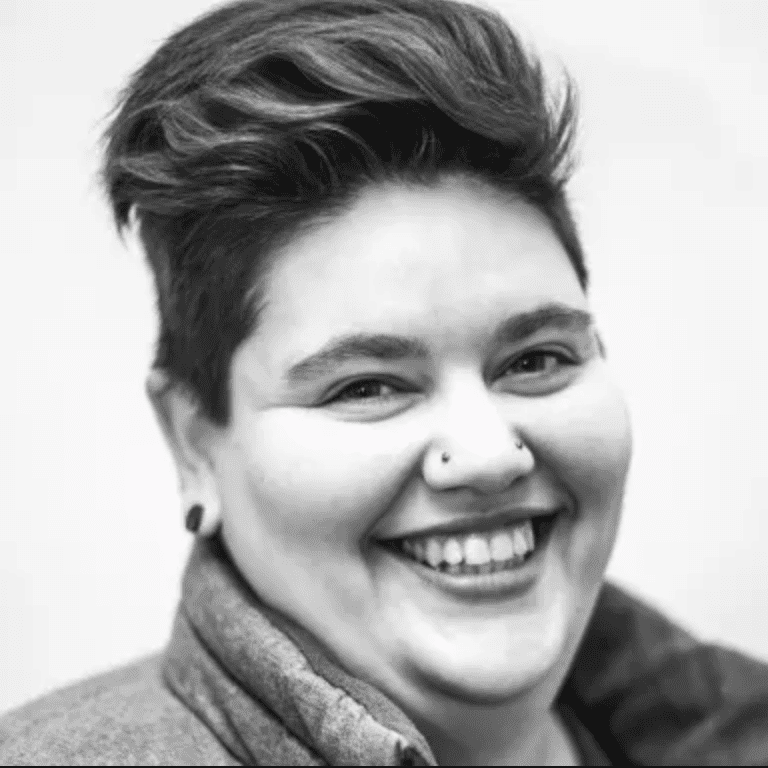6 LGBTQ+ Faculty Creating Change for Students on Campus
- Faculty supporting historically-excluded communities can bolster campus initiatives.
- Issues like inclusive housing and non-gendered bathrooms require faculty support.
- Inviting pronoun use and teaching about LGBTQ+ leaders help create more inclusive classrooms.
- LGBTQ+ faculty are critical to campus changes for all students.
On college campuses nationwide, LGBTQ+ faculty members create lasting change for students. Faculty support greatly affects campus and community developments, including bridging the gap between administration and students.
Faculty can support student-led movements, bring attention to critical LGBTQ+ issues, and engage other faculty members to take part in actionable steps.
The leadership of LGBTQ+ faculty greatly impacts college communities at large. Faculty support is critical for students of historically excluded communities and can create positive change for all.
Why LGBTQ+ Faculty Support is Critical
Many LGBTQ+ individuals face instances of discrimination, harassment, and bullying that impact learning and campus experiences. Recent issues impacting LGBTQ+ college students include non-gendered bathroom access, inclusive housing options, and sports involvement for trans students. While these issues center on the needs and experiences of LGBTQ+ students, they impact college students, campuses, and communities overall.
Student-led protests, campaigns, and organizations regularly bring issues to light on campus. Support by LGBTQ+ faculty can increase visibility and connections to administrators. Faculty support may also help students feel less isolated in their push for equal opportunities and other meaningful changes on campus.
Discriminatory practices and actions can negatively impact student learning. Faculty who actively stand against these behaviors in their classrooms and on campus can help make college experiences safer and more welcoming for all students.
Faculty members are typically on college campuses longer than students. This means that faculty can support students and address issues even as students enter and exit college.
Ways LGBTQ+ Faculty Create Positive Change for Students
LGBTQ+ faculty can create positive change on campus in a variety of ways. Faculty organizations allow individuals to join together supporting LGBTQ+ issues and equitable practices on campus. These organizations may lead the charge in informing and educating other faculty members on important issues.
Faculty support of student-led groups, like LGBTQ+ student centers, can contribute to a stronger impact across college campuses.
Teaching inclusive content helps to provide safe spaces within college classrooms. Teaching modern and historical LGBTQ+ issues, including influential members of the LGBTQ+ community in lessons, and using inclusive practices — such as inviting pronoun use — can go a long way toward uplifting positive classroom environments for all students.
Positive change can also come from supporting student activism, helping students create petitions for campus initiatives, and speaking to college administrators about student needs.
6 LGBTQ+ Faculty Creating Change for Students

Genny Beemyn is an advocate for LGBTQ+ rights and inclusive college campuses. Beemyn, one of the first out nonbinary trans college administrators, works in college student services and supports LGBTQ+ student issues.
Beemyn works as director of The Stonewall Center at UMass Amherst — a lesbian, gay, bisexual, trans, queer, intersex, and asexual resource center. It coordinates the Trans Policy Clearinghouse for Campus Pride, teaches about U.S. trans history, and advocates nationally for trans rights.
Beemyn has written and edited many publications, including “Trans People in Higher Education,” “The SAGE Encyclopedia of Trans Studies,” and “Campus Queer: Addressing the Needs of LGBTQ+ College Students.”

Dr. Jessica Toste is a long-time educator and LGBTQ+ advocate. She serves on the National Board of Directors for GLSEN (Gay, Lesbian & Straight Education Network) and co-founded its Austin chapter.
Dr. Toste currently works as an associate professor at UT Austin in the Department of Special Education. Her prior teaching experience includes professorships at Vanderbilt University and McGill University.
Dr. Toste is the chair of the Board of Directors for Disability Rights Texas and an Advisory Board member for UT’s University Charter School System. Her advocacy includes written publications and interviews that highlight the need to create safe and inclusive spaces for LGBTQ+ students.

Dr. Kevin Nadal is a professor, author, and LGBTQ+ rights advocate. Dr. Nadal authored ten books, including “That’s So Gay: Microaggressions and the Lesbian, Gay, Bisexual, and Transgender Community.” In 2015, Dr. Nadal became the first openly gay president of the Asian American Psychological Association.
His research focuses on the impacts of microaggressions on historically excluded groups, including LGBTQ+ people and racial minorities.
In 2014, Dr. Nadal became the first person of color to serve as executive director of CUNY Graduate School’s Center for LGBTQ Studies. He also co-founded the LGBTQ Scholars of Color National Network.

Dr. Kaila Adia Story is the Audre Lorde Endowed Chair in Race, Class, Gender, and Sexuality Studies. She teaches in the Women’s, Gender & Sexuality Studies, and Pan-African Studies departments. Her podcast, “Strange Fruit: Musings on Politics, Pop Culture & Black Gay Life,” discusses race, gender, and LGBTQ+ issues.
In 2017, Dr. Story was honored by NBC as an LGBTQ+ community leader and changemaker. Her publications and public speaking engagement topics include Black queer and trans lived experiences, racism within trans communities, and the Stonewall uprisings. She teaches courses on topics such as LGBTQ studies, Black feminism, queer performance, and Black lesbian lives.
Dr. Story’s focus on the intersectionalities of race, gender, and sexuality offers an important component of student support.

Amy Lind is a professor in the Women’s, Gender, and Sexuality Studies Department and director of the TAFT research center. In addition to other educational focal points, Lind teaches feminist and queer theory.
In 2019, Lind established the University of Cincinnati’s first LGBTQ Faculty and Staff Association. Lind publishes writing on topics including gender, global development, sexual rights, and feminism.

Kristen Eckstrand is an assistant professor at the Western Psychiatric Hospital of the University of Pittsburgh Medical Center. Her advocacy for LGBTQ+ people on college campuses is rooted in medical education.
In 2012, Dr. Eckstrand co-founded the Program for LGBTQ Health at Vanderbilt University. She was also the founding chair of the Association of American Medical Colleges’ Advisory Committee on Sexual Orientation, Gender Identity, and Sex Development.
Dr. Eckstrand served on the board of directors of GLMA: Health Professional Advancing LGBT Equality and as a member of the American Medical Association’s LGBT Advisory Committee.
Eckstrand has been honored for her excellence in diversity, equity, and inclusion by the University of Pittsburgh and Vanderbilt University administration.
Explore More College Resources

Best Colleges for LGBTQ+ Students in 2024
The increased visibility of LGBTQ+ students on campuses has increased the need for support networks. Here are the top-ranked colleges for LGBTQ+ support.

by Cobretti D. Williams, Ph.D.
Updated December 12, 2024

College Experience Guide for LGBTQ+ Students
Explore common experiences and challenges of LGBTQ+ college students and learn how you can ensure your campus supports and affirms LGBTQ+ students.

by R.B. Brooks
Updated June 5, 2025

